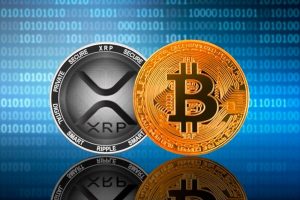German investment platform Deutsche Bank AG has filed for a license granting permission to operate as a digital asset custodian in the country. This will allow the financial institution to expand its income stream and introduce more users into the crypto industry if approved.
“We’re building out our digital assets and custody business. We just put our application into the [German] BaFin for the digital asset license,” David Lynne, the Global Head of Deutsche’s Corporate Bank, said in a Tuesday conference.
Deutsche Goes Deeper Into Crypto
David Lynne noted that the move will help increase the corporate bank’s “fee income.” The latest move echoes the institution’s efforts to expand its offerings to digital assets such as cryptocurrencies.
Deutsche Bank has since been in support of cryptocurrencies. As far back as 2019, the German investment firm touted digital assets as the future of money. The institution noted in an article that digital currencies will overtake fiat currencies by 2030. The financial company held on to its stance on digital assets the following year.
In late 2020, Deutsche’s Corporate Bank subsidiary signaled its plan to support the trading of digital assets on its platform. The plan was revealed under the jurisdiction of former Global Head Stefan Hoops. However, no action was made until now when David Lynne took the executive role.
Deutsche Bank’s asset management unit, DWS Group, declared its intention earlier this year to invest in two German-based crypto platforms. The financial firm was also in talks with Mike Novogratz’s cryptocurrency investment firm Galaxy Digital for a possible collaboration.
Other German Financial Institutions Support Crypto
Germany has shown itself to be a crypto-friendly country as financial regulators and companies embrace the asset class. In February, DZ Bank, Germany’s second-largest bank by assets under management, forged a partnership with a crypto firm. It enabled the bank to offer cryptocurrencies to users.
In March, the German financial regulatory agency, BaFin, declared non-fungible tokens (NFTs) as non-securities but as an investment. Still, the financial watchdog stated that NFTs are subject to anti-money laundering (AML) checks.










